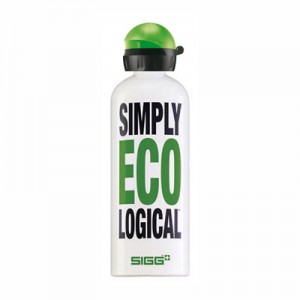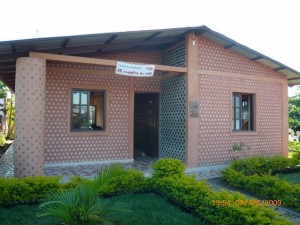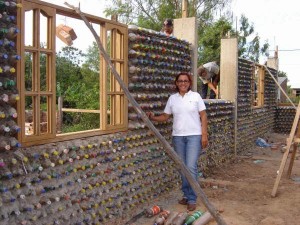Reduce and Reuse

As humans, we all need water everyday to survive. This need leads to an excess use of plastic water bottles. In some places, plastic water bottles are a necessity not an option, such as in places where there is no clean drinking water. If everyone recycled their water bottles properly there would not be as great of an environmental issue. However, a small percentage of the human population properly recycle, thus creating land cluttered with plastic that will not biodegrade. Some facts pertaining to plastic water bottle pollution include; the fact that plastic water bottles take over 1,000 years to bio-degrade, recycling is only feasible in limited circumstances because only PET bottles can be recycled (all other bottles are discarded. Only 1 out of 5 bottles are sent to the recycle bin), and U.S. landfills are overflowing with 2 million tons of discarded water bottles alone. (The Water Project).
In some third world countries they have begun to utilize the plastic water bottles to build homes.
However, these practices are not seen too frequently, therefore we need to focus on a different approach to tackle this problem. I propose to no longer use plastic water bottles and buy a reusable one to use everyday instead. I chose to change this behavior because I do not currently have a reusable water bottle and I typically use a plastic water bottle everyday. I anticipate there to be a few challenges, mainly convenience. If I am not home or if I do not have my reusable water bottle on me, I may be inclined to buy a water bottle. Also, if I am going somewhere and I cannot bring my reusable water bottle, it may be difficult to go without plastic water bottles. For example, I would not have been able to maintain this challenge a week ago because I flew to the Dominican Republic where you cannot bring liquids past security in the airport and the tap water was unsafe to use in the Dominican Republic, therefore we had to use plastic water bottles and could not refill them. I think that being on a college campus will make this challenge somewhat easier to follow and accomplish. I live in a house off campus where we can drink the tap water, as well as the multiple water bottle refill stations in the academic buildings on campus.
Work Cited:
http://thewaterproject.org/bottled_water_wasteful.asp


Leave a Reply to Sarah White Cancel reply